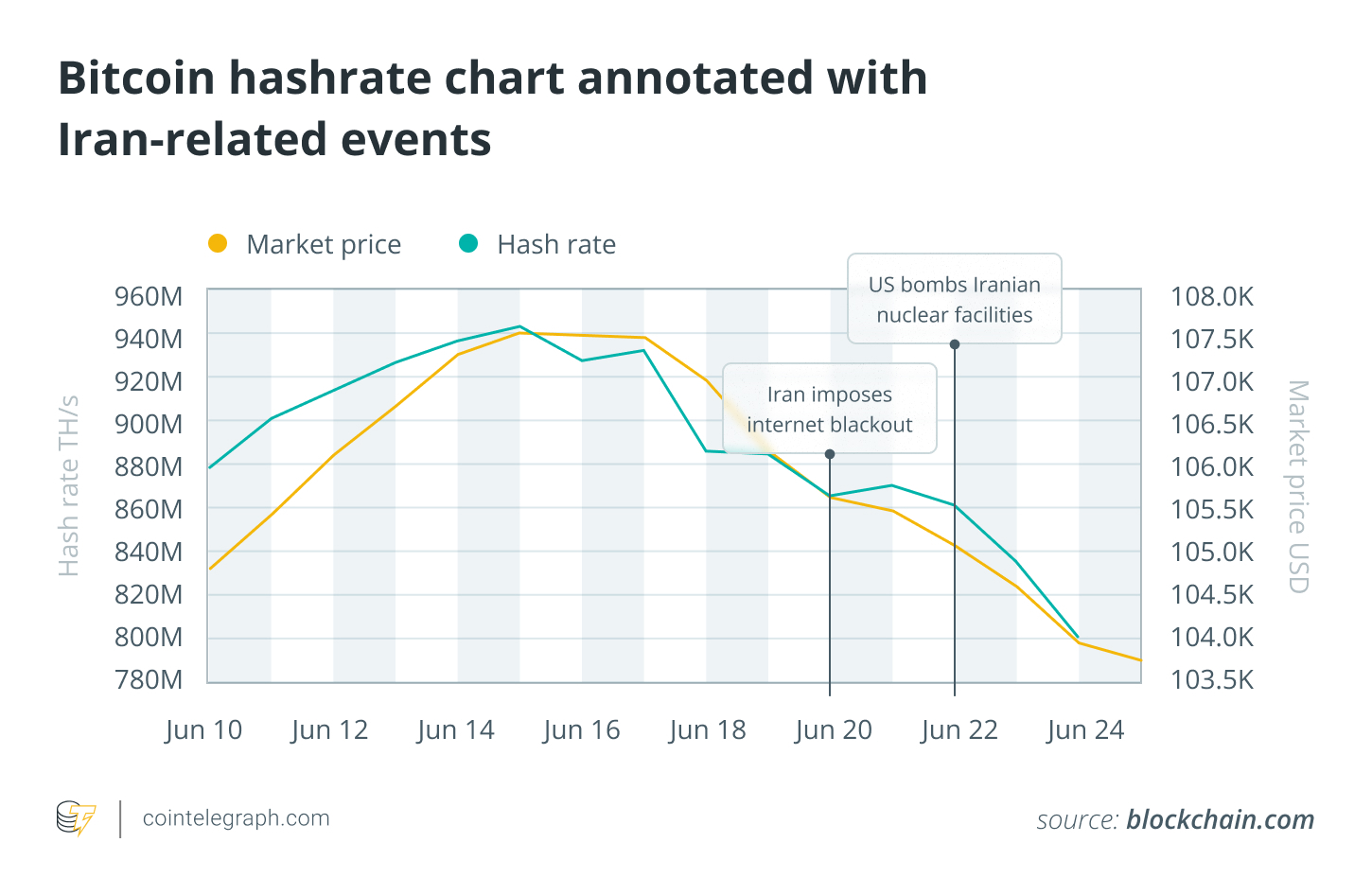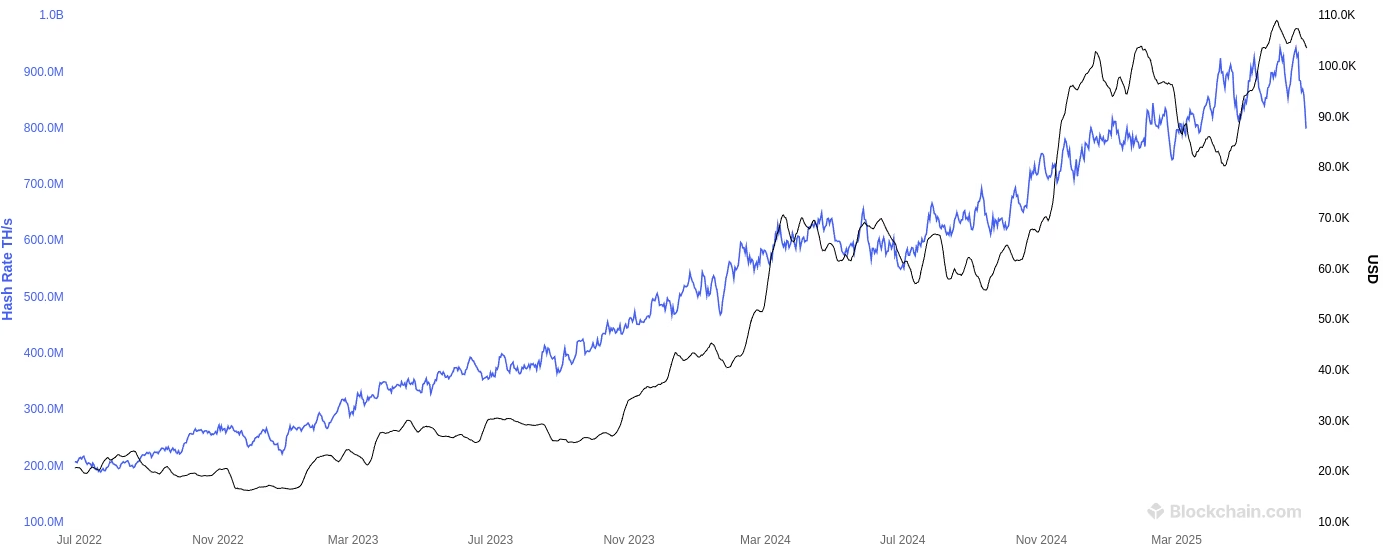Bitcoin’s hashrate saw its most dramatic fall of the last three years between June 15 and Tuesday, according to Blockchain.com data.
Bitcoin’s hashrate decreased from nearly 943.6 billion terahashes per second (TH/s) on June 15 to 799.9 TH/s on Tuesday, a decline of more than 15%.
The sharp drop has fueled speculation about possible geopolitical and environmental causes.
While the reason behind the sudden downturn is not yet confirmed, many in the cryptocurrency community are pointing to Iran as the cause.

Related: 93% of all Bitcoin is already mined. Here’s what that means
Iran’s presumed connection
Iran is known to run large-scale Bitcoin mining operations in the country. The National Council of Resistance of Iran reported in late May that large cryptocurrency mining operations run or protected by Iranian state actors, especially the Islamic Revolutionary Guard Corps, are partly to blame for local power outages.
While this makes an Iran connection plausible, closer scrutiny raises some doubts about the theory. The Iranian government imposed a near-total internet blackout on Friday to protect itself from cyberattacks, TechCrunch reported.
This coincided with the global hashrate falling from 884.6 million TH/s on Thursday to 865 TH/s on Friday. This represented a 2.2% decline.
This was followed by a US strike on Iranian nuclear facilities on Sunday, which, according to Reuters, also led to electric grid outages. This coincided with a 1% fall in global hashrate from 869.9 TH/s on Saturday to 860.9 TH/s on Sunday.
Related: Bitcoin hashrate tops 1 Zetahash in historic first, trackers show
The connection is weak
Only a little over 3% of the total hashrate decrease coincided precisely with recent events in Iran. Furthermore, the hashrate fell by over 6.25% from June 15 until Thursday, before Iran was bombed by the US or imposed an internet blackout.

This data shows that the hashrate was already on a steep decline before the events, and the ongoing fall is simply a continuation of a trend that may be exacerbated by events in Iran.
Other factors that are likely playing a role are rising electricity prices and the ongoing heatwave in the US. The heatwave results in lower mining efficiency, which might prompt low-profit mining facilities to shut down.
Heatwaves also lead to higher power demand and higher power prices, further reducing Bitcoin mining profitability. New York-based utility Con Edison…
Click Here to Read the Full Original Article at Cointelegraph.com News…
